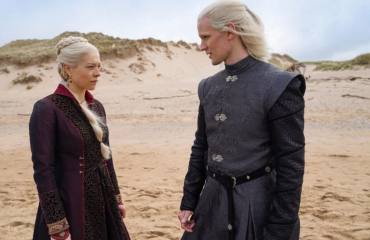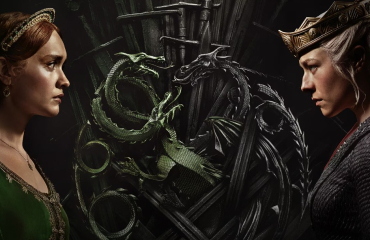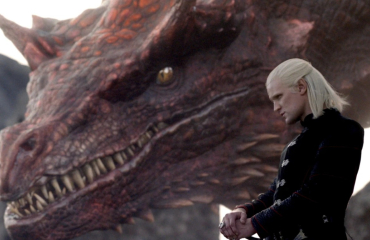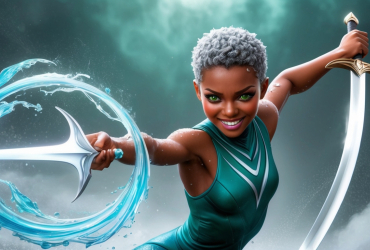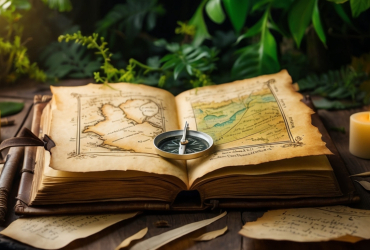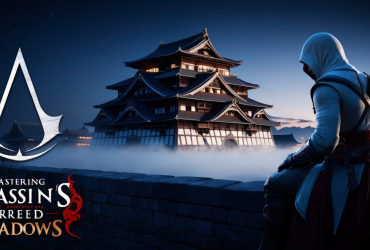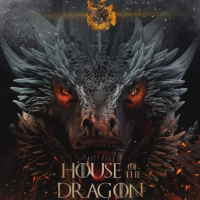
House of the dragon
- 14-08-2024
House of the dragon
As a devoted admirer of the fantasy genre, and particularly of George R.R. Martin's endlessly intricate universe, I eagerly awaited the arrival of "House of the Dragon." With its promise to delve into the Targaryen dynasty and the bloody civil war known as the Dance of Dragons, I was brimming with excitement for what I hoped would be a riveting prequel to "Game of Thrones." What unfolded was a rich tapestry of drama, politics, and iconic dragons, yet somehow, it left me grappling with an unsettling feeling of mid-journey fatigue as the end credits rolled. Allow me to take you through my journey of watching this ambitious series, and exploring various aspects that shaped my experience.
Historical Context
“House of the Dragon” is rooted in the fountain of lore that Martin has so painstakingly crafted over decades. The Targaryens are a family steeped in history and tragedy, legendary for their dragons and contentious claims to the Iron Throne. The series builds upon the historical underpinnings laid out in Martin's text, "Fire & Blood." I found it fascinating to explore a period that is only briefly mentioned in the core series, offering a deeper understanding of the Targaryen lineage and how it ultimately shaped the fate of Westeros. It provoked intrigue in the prospect of watching a world at its zenith, rich with dragons and ambition.
One of the most captivating features of the show is undoubtedly the dragons. These mythic creatures have long been inseparable from the Targaryens and their reign. From the impressive CGI effects that bring these fire-breathing beasts to life to the emotional connections the characters share with them, dragons offer more than just spectacle; they embody power, legacy, and consequence. Watching our cast engage with these magnificent creatures provided a visceral latch to the story, reminding me of the stakes involved in their battles.
Character Depth
The characters in "House of the Dragon” are, for the most part, complex and multifaceted, each embodying the conflicted nature of the Targaryen heritage. Rhaenyra Targaryen stands out as the reluctant warrior propelled into leadership through tragedy. Watching her evolve throughout the series was engaging, as her struggles with identity and power play out in a world that perpetually seeks to diminish her. However, I often found myself feeling frustrated by her apparent reluctance to seize the moment, leading me to question the narrative's pacing and direction.
The relationships among the Targaryen family members serve as the lifeblood of the series, creating a compelling blend of loyalty, betrayal, and ambition. The turbulent bond between Rhaenyra and her half-brother Aegon contemplates the true meaning of family when the throne is at stake. The layered interactions and the palpable tension made for invigorating viewing, yet sometimes, it felt as if these complexities lingered too long without resolution, causing the pace to drag.
Political Maneuvering
Political intrigue has always been a hallmark of Martin's work, and I found it equally vital in this series. The strategic thinking of characters such as Alicent Hightower and Corlys Velaryon added depth to the plot. Their aspirations and machinations gave rise to unexpected alliances and rivalries, amplifying the show's tension. However, I sometimes worried that the political chess game overshadowed the personal stakes, resulting in the narrative feeling more cerebral than emotionally charged.
Visual Aesthetics
The cinematography and set design are genuinely stunning, imbuing the show with a sense of grandeur befitting its epic tale. The palaces, battlefields, and dragon roosts were meticulously crafted, providing a fitting backdrop for the Targaryens' tempestuous saga. This attention to detail made for a feast for the eyes, yet I couldn't help but feel that the visual splendor occasionally distracted from the storytelling, as intricate designs sometimes eclipsed character development.
Upon reflection, one of the most contentious aspects of "House of the Dragon” is its pacing. With each episode, I found myself yearning for more immediate action, yet the series often succumbs to drawn-out dialogues and internal struggles. The slow build-up towards eventual confrontations left me suspended in anticipation, but the overwhelming talk without significant forward movement over the season's span built a sense of impatience. For a series that promises dramatic chaos, the lingering dialogues felt more cumbersome than engaging at times.
Themes of Power
The desire for power is a central theme, and “House of the Dragon” explores it deftly through its characters. The lengths individuals are willing to go to retain or obtain power create a web of moral ambiguity. Rhaenyra’s insecurities and Daemon’s unyielding ambition act as lenses through which viewers can reflect on the costs of leadership and desire. Yet as compelling as these themes are, I often found them buried beneath the weight of indecision that pervades much of the season.
At key moments in the narrative, emotional stakes ring true, drawing me into the characters' experiences. The impact of a loss, the weight of solitude, and the burden of legacy converged to create poignant moments of vulnerability and connection. These fleeting glimpses of raw emotion are moments I cherished, marking them as highlights amidst the more drawn-out segments. It revealed potential that felt underutilized as the show leaned predominantly on its plot-driven nature.
Conflicts and Confrontations
As the tension mounts towards war, I found myself longing for intense conflicts that reflect the show's thematic weight. While episodes occasionally showcased powerful encounters or skirmishes, they were often insufficient to deliver the explosive narrative payoff promised. Instead, the pacing resulted in embroidery around potential battles that, in retrospect, left me feeling unfulfilled and longing for a more palpable sense of urgency in storytelling.
The Role of Humor
“House of the Dragon” occasionally leverages moments of humor, delivering relief amid the tense stakes. There exists a clever wit present within the banter between characters, which I appreciated as it showcases their personalities and relationships. This infusion provided necessary levity that contrasts with the broader themes of conflict and ambition. However, at times, I wondered if it diverted focus from the heavy narrative threads that demanded a more serious tone.
With “Game of Thrones” having set an exceptionally high bar, fan expectations inevitably color perceptions of any follow-up work. I approached “House of the Dragon” with a discerning eye, hoping for an equally dynamic experience. When it became evident that the pacing and focus differed greatly from its predecessor, I found myself grappling with the disappointment that stemmed from highly set expectations. Ultimately, I came to terms with the notion that it aims for a different narrative rhythm while still trying to carve its identity.
The Cast's Performances
The ensemble cast delivers commendable performances that elevate the material, capturing the essence of their characters. Emma D'Arcy as Rhaenyra showcases her descent from a hopeful leader into a battle-weary commander, while Matt Smith's Daemon Targaryen artfully embodies a mix of charm and chaos. Each actor's portrayal enhances the drama, and it’s evident that a tremendous effort went into creating dynamic, complex characters who drive the narrative. However, even the strongest performances could not entirely break free from the confines of the fluctuating pacing.
The show hints at the bloody clash of the Dance of Dragons, and I admire its willingness to explore the consequences of past decisions on future actions. Yet, I found myself both captivated and frustrated by how long it takes to build momentum. As fascinating as the foreshadowing elements are, I hoped for more immediate engagements to accompany the set-up, allowing viewers to savor the unfolding drama rather than feeling like we're perpetually on the precipice.
Final Impressions
In conclusion, “House of the Dragon” offers an ambitious exploration of the Targaryen legacy, embellished with rich characters and dramatic stakes. However, it struggles to balance drawn-out dialogue and character indecision against the backdrop of its epic potential. Despite its highlights, moments of deep emotional resonance get lost amidst a pacing that sometimes feels off-kilter. As I reflect on my journey through this series, I am filled with hope that future seasons can find a way to soar above their current trajectory, delivering the thrilling conflicts and grand confrontations that we all crave.
Watching "House of the Dragon" has been an experience that challenges my perceptions and understanding of the Targaryens. While it possesses elements that resonate, the inconsistencies in pacing and momentum prevent it from fully realizing its potential. Yet the allure of the world that Martin has created keeps me invested. I find myself hopeful for the future of the series, longing for a swift change that allows it to live up to the epic storytelling potential it teased me with. As with everything in Westeros, the fate of "House of the Dragon" remains to be seen.
Screenshots
